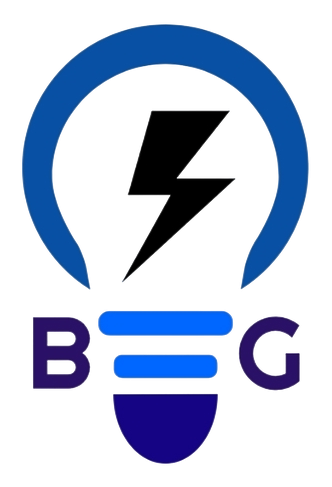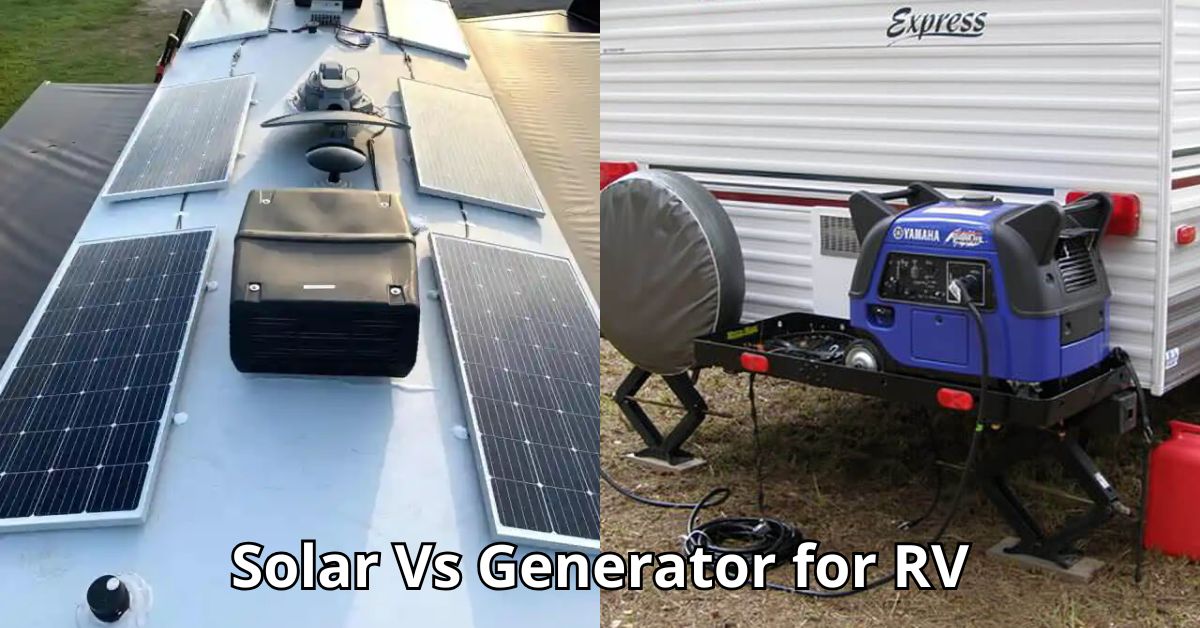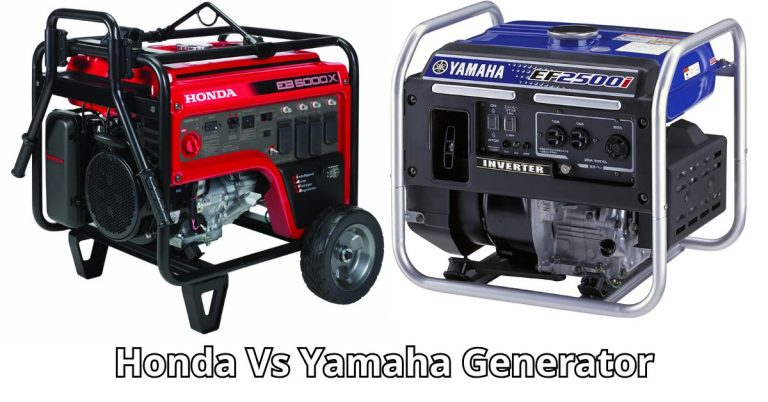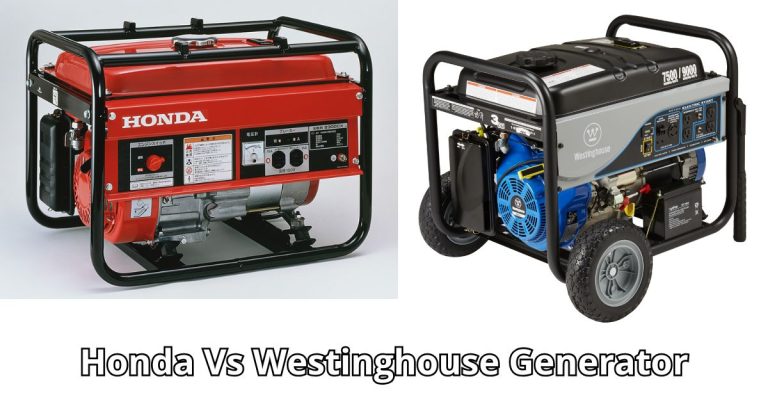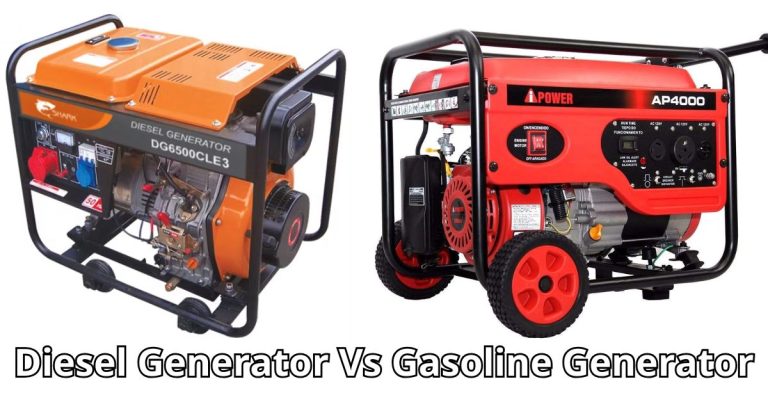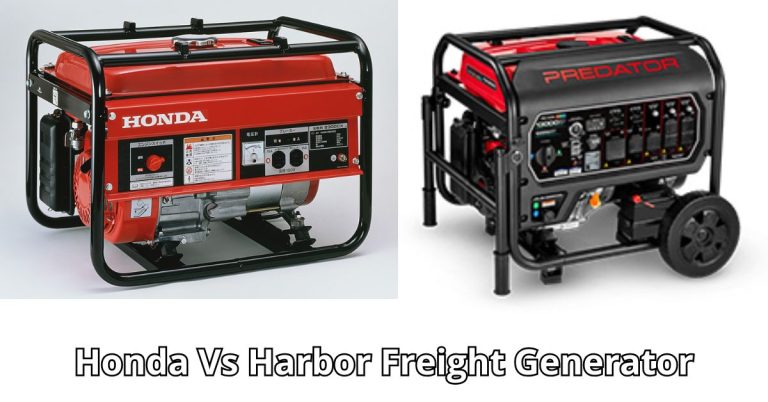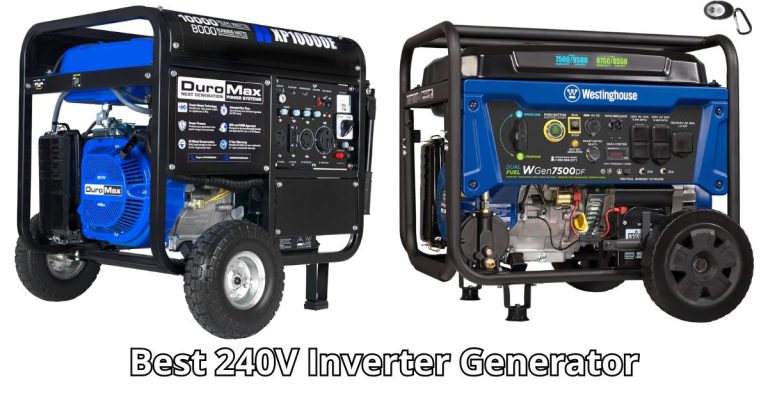Solar Vs Generator for RV: The Ultimate Power Showdown
Choosing between solar power and a generator for your RV can be tricky. Both have their pros and cons, and the right choice depends on your needs.
RV owners often face the dilemma of how to power their homes on wheels. Solar power offers a renewable and quiet energy source, while generators provide reliable power on demand. Understanding the benefits and drawbacks of each option is crucial.
With the right information, you can make an informed decision that suits your lifestyle and travel plans. This post will help you compare solar power and generators, considering factors like cost, convenience, and environmental impact. Let’s explore the best power solution for your RV adventures.
Solar Power Basics
RVers seeking reliable power sources have two main options: solar power and generators. Solar power stands out for its eco-friendliness and low maintenance. This section delves into the basics of solar power, providing a clear understanding for RV enthusiasts.
How Solar Panels Work
Solar panels convert sunlight into electricity. Photovoltaic cells inside the panels capture sunlight. These cells then generate direct current (DC) electricity. The DC electricity flows through wires to the charge controller.
The charge controller regulates the flow of electricity. It ensures the batteries do not overcharge. The batteries store the energy for later use. An inverter converts the stored DC power into alternating current (AC) electricity. AC electricity powers most RV appliances.
Components Of A Solar Setup
A solar setup consists of several key components. Solar panels, charge controllers, batteries, and inverters. Each component plays a crucial role in the system.
Solar panels are the first component. They capture sunlight and generate electricity. The charge controller manages the flow of electricity. It protects the batteries from overcharging.
Batteries store the generated electricity. They provide power when sunlight is not available. The inverter converts DC electricity from the batteries into usable AC power. This powers your RV appliances.
Understanding these components is essential. It helps in maintaining an efficient solar setup. It also ensures you have a reliable power source for your RV adventures.

Generator Power Essentials
When considering power options for your RV, generators offer reliable energy. They are essential for off-grid adventures. Understanding the basics of generator power can help you make an informed decision. Let’s dive into the essentials of generator power for RVs.
Types Of Generators
There are two main types of generators for RVs:
- Portable Generators: These are small and easy to move. They are ideal for temporary use.
- Built-in Generators: These are installed in the RV. They offer convenience and are designed for frequent use.
Portable generators are versatile. They can power various devices outside the RV. Built-in generators save space inside the RV. They are more powerful and efficient.
How Generators Work
Generators convert fuel into electrical power. This process involves a few key steps:
- The generator engine burns fuel.
- The engine turns the alternator.
- The alternator generates electricity.
The generated electricity can then power your RV appliances. Fuel types for generators include gasoline, diesel, and propane. Each type has its pros and cons. Gasoline is widely available but can be expensive. Diesel is more efficient but less common. Propane is clean but requires storage tanks.
Generators also have different power ratings. Choose one based on your power needs. Typical ratings range from 2000 to 7000 watts. A higher wattage means more power for your appliances.
Generators are noisy. Consider the noise level when selecting a generator. Look for models with noise reduction features. This will ensure a peaceful camping experience.
Cost Comparison
Choosing between solar power and a generator for your RV can be challenging. The cost of each option varies. Here, we break down the costs to help you decide.
Initial Investment
Solar systems have a higher upfront cost. You need panels, batteries, and an inverter. Installation can add extra expenses. Generators, on the other hand, cost less to buy. They are ready to use with minimal setup. But think about this: a generator needs fuel to run.
Long-term Savings
Solar power is free once you install the system. The sun provides endless energy. You save money over time. Generators need fuel, which costs money. The price of fuel can go up. Maintenance is another cost. Generators need regular servicing.
Solar systems need little maintenance. Panels last many years. Batteries need replacement, but not often. The savings add up with solar. It’s a one-time investment. Generators have ongoing costs. They can be a drain on your wallet over time.
Environmental Impact
Choosing between a solar system and a generator for your RV is not just about cost or convenience. The environmental impact of each option is a crucial factor to consider. Understanding the differences can help you make a more informed decision. This section explores how each power source affects the environment.
Carbon Footprint
Solar panels generate electricity from sunlight. This process does not produce any carbon emissions. Once installed, solar panels provide a clean energy source with minimal environmental impact.
On the other hand, generators run on fuel. This fuel can be gasoline, diesel, or propane. Burning these fuels releases carbon dioxide (CO2) into the atmosphere. CO2 is a major contributor to climate change.
Here is a simple comparison:
| Power Source | Carbon Emissions |
|---|---|
| Solar Panels | None |
| Generators | High |
Noise Pollution
Solar power systems are silent. They convert sunlight into energy without any moving parts. This means no noise, providing a peaceful camping experience.
Generators create noise. This noise can be disruptive, especially in quiet camping areas. The noise level depends on the generator’s size and type. Some generators are quieter than others, but they all produce some noise.
Here is a quick comparison:
| Power Source | Noise Level |
|---|---|
| Solar Panels | Silent |
| Generators | Variable (but always present) |
Choosing a power source for your RV involves weighing these environmental factors. Solar panels offer a cleaner and quieter option. Generators, while convenient, have a more significant environmental impact. Consider these points carefully to make the best choice for your needs and the planet.
Ease Of Use
Choosing between a solar system and a generator for your RV can be challenging. One of the key factors to consider is ease of use. Both systems have their own advantages and drawbacks. Let’s explore the ease of use by examining installation and maintenance.
Installation
Installing a solar system on your RV is straightforward. It involves mounting solar panels on the roof. Then, connect them to a charge controller and battery bank. Some RVs come pre-wired for solar, making the process even easier.
Generators, on the other hand, often require more effort. You need to find a suitable location to place the generator. You also need to ensure proper ventilation. Fuel lines and electrical connections must be installed correctly.
Maintenance
Solar systems require minimal maintenance. Periodically clean the panels to ensure they capture maximum sunlight. Check the connections and battery health occasionally. This simple routine keeps the system running efficiently.
Generators need regular upkeep. You must check and change the oil, replace air filters, and inspect spark plugs. Fuel storage and usage also need monitoring to prevent issues. This can be more time-consuming compared to solar systems.
Power Reliability
When choosing between solar and generators for your RV, power reliability is crucial. You need a dependable power source for your travels. Let’s explore how solar panels and generators compare.
Consistency
Solar panels provide consistent power during daylight hours. They rely on sunlight, which is predictable. Generators, on the other hand, offer consistency regardless of the time. They run on fuel, ensuring power at any hour. This makes generators reliable for night use or during cloudy days.
Weather Dependency
Solar panels depend on the weather. On sunny days, they work well and provide ample energy. But on cloudy or rainy days, their output drops. This can affect your RV’s power supply. Generators are not affected by weather. Rain or shine, they deliver power as long as there’s fuel. This makes them more reliable in varying weather conditions.
Credit: www.harvesthosts.com
Frequently Asked Questions
What Are The Benefits Of Solar For Rvs?
Solar power is clean, renewable, and quiet. It reduces reliance on fuel and generators. Solar panels can charge RV batteries during the day.
How Does A Generator Compare To Solar For Rvs?
Generators provide consistent power regardless of sunlight. However, they are noisy and require fuel. Solar power is quieter and more sustainable.
Can Solar Panels Fully Power An Rv?
Yes, solar panels can fully power an RV. However, it depends on the RV’s energy consumption and the solar system’s capacity.
Is It Cheaper To Use Solar Or A Generator?
Solar power has a higher upfront cost but saves money in the long run. Generators have ongoing fuel and maintenance costs.
Conclusion
Choosing between solar and a generator for your RV depends on your needs. Solar power is quiet and sustainable. Generators provide more consistent power but need fuel. Think about your travel plans and power usage. Both options have benefits. Pick the one that suits your lifestyle best.
Happy travels!
